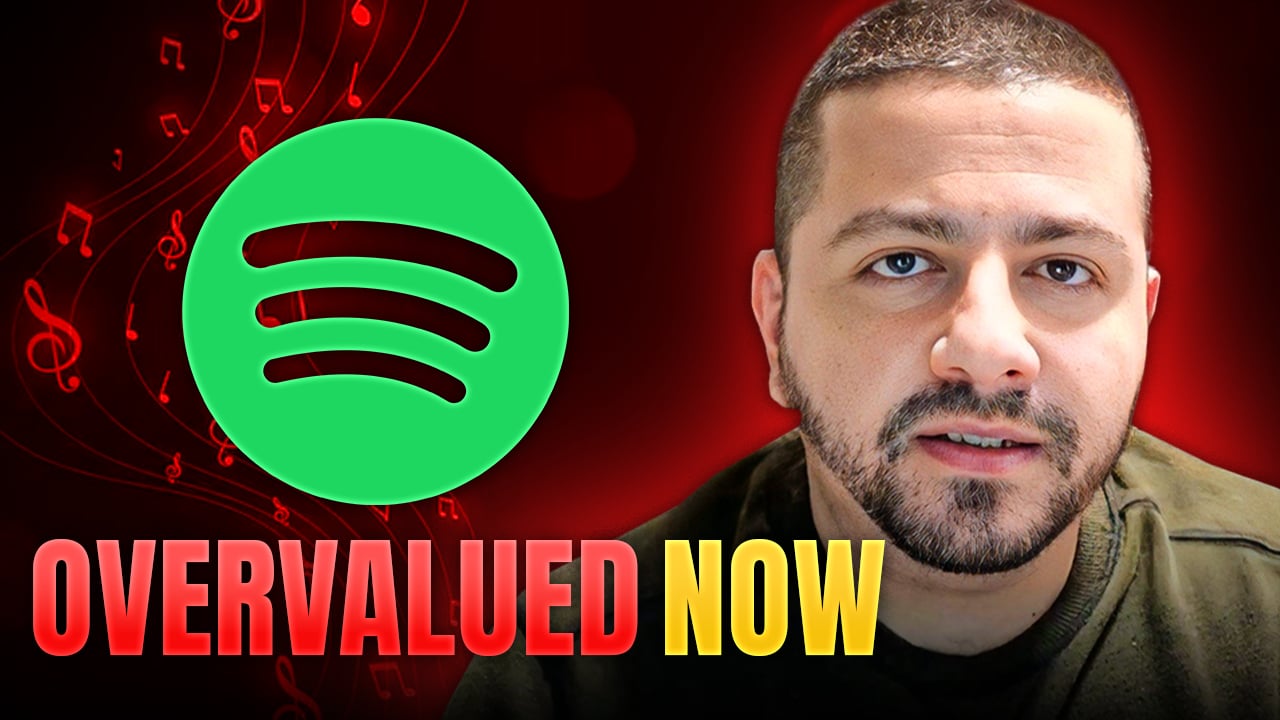In this segment from MarketFoolery, host Chris Hill is joined by Maria Gallagher of Motley Fool Asset Management and summer investing analyst Troy Springer to break down the most interesting news of the day from Wall Street.
They consider the case of Spotify Technology (SPOT 2.80%), which recently reported its second-quarter numbers. Revenue, user, and premium subscriber numbers were all solidly heading in the right direction. But profitability remains elusive, raising questions about the entire model of the industry.
Maria Gallagher is an employee of Motley Fool Asset Management, a separate, sister company of The Motley Fool, LLC. The views of Maria Gallagher and Motley Fool Asset Management are not the views of The Motley Fool, LLC and should not be taken as such.
A full transcript follows the video.
This video was recorded on July 26, 2018.
Chris Hill: Let's move on to Spotify. Second quarter revenue for Spotify came in 26% higher than a year ago. That's good, Maria. If you're looking at actual profitable dollars, keep looking. They're doing a couple of things right, probably. Don't you think? They're growing revenue, they're growing subscribers. But, anyone who's looking at Spotify and looking for profits, they're not going to find any.
Maria Gallagher: Yeah, they're not profitable, they've never been profitable. It's important to note that their monthly average users is up 30%. Their premium subscribers is up 40%. But, like you said, they haven't been profitable. I think that draws more questions about the industry and less about the company. It's a strong company, but the streaming service industry is so young. Also, they're paying so much in royalties. Spotify only gets 30% of the money, and 70% goes back to the labels for royalty. That begs the question of, how profitable is this industry, less the question of, how profitable is Spotify.
Hill: The fact that shares of Spotify are up 3-4% today, where do you think that optimism is coming from? Is it just the growth, the feeling that, look, they are growing their paid subscribers, they are boosting their overall revenue, so at some point, the profits are going to come?
Troy Springer: The market has really paid a big premium to companies who command a lot of data, and that's what Spotify has. They have a lot of data on the users, what their preferences are. It's similar to the Netflix (NFLX 0.20%) argument. Netflix has more data, so they can provide a better experience. That's where Spotify is buttering their bread -- on their Discover Weekly playlists, and everything like that. I totally agree with Maria's point. The economics of this business, of the music industry in general, is not good, and it's never historically been good.
Hill: Not for the artists. Historically, the music business, not great for the artists.
Gallagher: No, not great.
Hill: Good for the record labels.
Springer: Right. I think it's a totally different industry than video, in the sense that Spotify has to pay royalties every time someone plays a song. That's a recurring cost that they're always going to have to pay. There's decreasing returns to scale. In a video business, Netflix can pay a whole bunch of money up front, and they don't care how many times people watch the video. They want people to watch the video more. So, I think it makes it really tough for Spotify. At the valuation they're at, it's a little speculative.
Gallagher: I agree. To build on that, like you said, the music industry has been profitable for labels. I don't know if you've heard the myth that Spotify is going to open a record label, but the CFO yesterday said that's not true and they're not planning to do that. But, I think that's an interesting way to see how that business would grow. Artists have been pretty vocal about disliking their labels. It's not like artists are super loyal to the labels that they are currently under. So, that would be an interesting thing. Even though Spotify says it's not going to start its own label, I wouldn't be so certain.
Hill: You have a Spotify account?
Gallagher: Yeah.
Hill: A premium account? You're paying for that?
Gallagher: Yeah. I started as student premium. This is also pretty indicative of how it usually works. I started paying for premium as a student, so it was cheaper. But once my student service was over, I really didn't want to have to listen to ads, because I was so used to not listening to ads, I have all my good playlists that I listen to at the gym, so I just pay up for premium.
Springer: It's the best $10 I spend a month.
Hill: [laughs] To go back to something you were saying, Troy, you brought up Netflix. We've talked in this studio before about video streaming services being, in some ways, complementary to one another. It's not like buying a car. You can have your Hulu account and your Amazon Prime account and your Netflix account. I don't think that's the case with this. It's basically, pick a music service. You have Spotify. In our house, we have Pandora.
Gallagher: You still use Pandora? [laughs]
Hill: Yeah. You know why? I'll tell you why. I got it as a Christmas gift for my wife. I was like, "I'm going to get a premium account." And Pandora's gift experience was so smooth and so easy. I actually went to Spotify first. Spotify did not make it easy for me to buy a gift subscription. To the extent that anyone at Spotify is listening, you might want to work on that.
Gallagher: Can you name your playlists in Pandora? I think that's the most excited I get about Spotify, when I can come up with a new playlist name.
Hill: I don't actually use the account, I just got it for her, so I don't know. But, hey, that's a nice little thing. I guess, the larger point is, you're not getting a second music streaming service. No one is going to be like, "Well, I have my Spotify service, but I'm also going to pay for Apple Music."
Springer: No. There's not much differentiation in the industry, which makes it tough.
Gallagher: Yeah, unless you're Jay-Z and you have title, and you can't listen to Jay-Z anywhere else.
Springer: That's the argument for Spotify. Spotify gets so much leverage, to the point where even smaller artists like working with Spotify, and they can maybe skip the record label? That's really the huge opportunity for Spotify. But when there's not enough differentiation between them and Apple Music, it might be hard for Spotify to gain that much leverage, to actually cut out the middleman of the record labels.







